Agriculture and Biosecurity newsletter: February 2023
2023 Northern Australia Food Futures Conference - tickets on sale
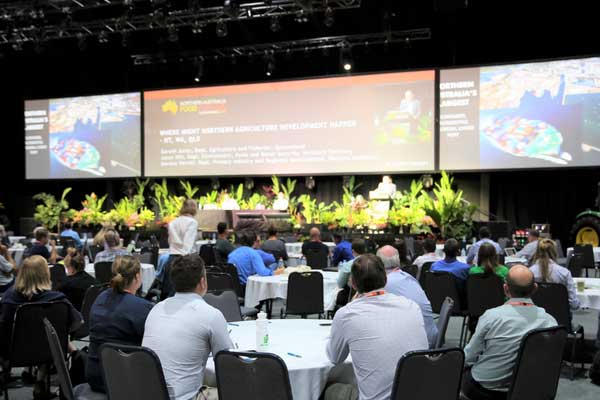
The Northern Territory (NT) Government is a sponsor of the NT Farmers Association Food Futures Conference. Held from 22 to 25 May 2023, the conference will feature over 50 speakers from industry, research, government and the private sector, including successful farmers from WA, NT and Qld. The conference includes workshops, keynote and plenary sessions and Ag Tech Forum, and exhibition and displays.
To register, go to the Northern Australia Food Futures Conference 2023 website.
2023 Northern Territory Cattlemen's Association Conference - book your place

The Northern Territory (NT) Government is a proud supporter of the NT Cattlemen’s Association. Don’t miss this year’s conference to be held in Darwin on the 16 and 17 March. Book your place now.
To register, go to the NTCA Conference website.
EOI now open for Territory Farm Business Resilience Program
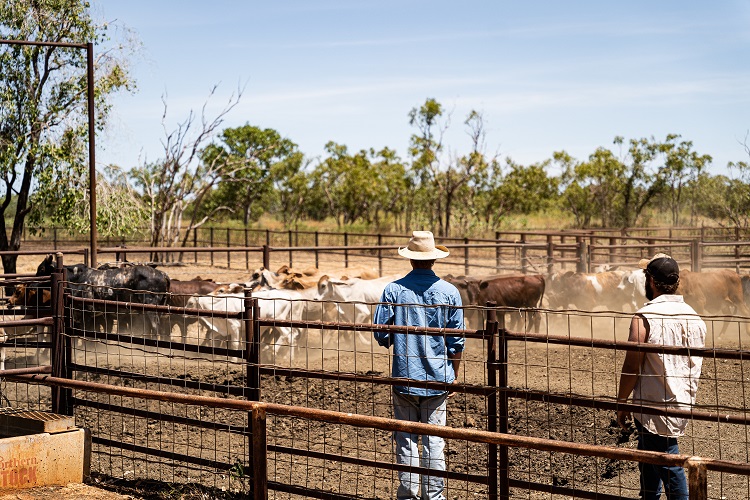
The Territory Government and the Northern Hub is working with the Australian Government’s Future Drought Fund to create opportunities for pastoralists and farmers to connect with each other and business professionals to improve their farm business resilience skills.
Read more about the Territory Farm Business Resilience Program.
Easy P trial update
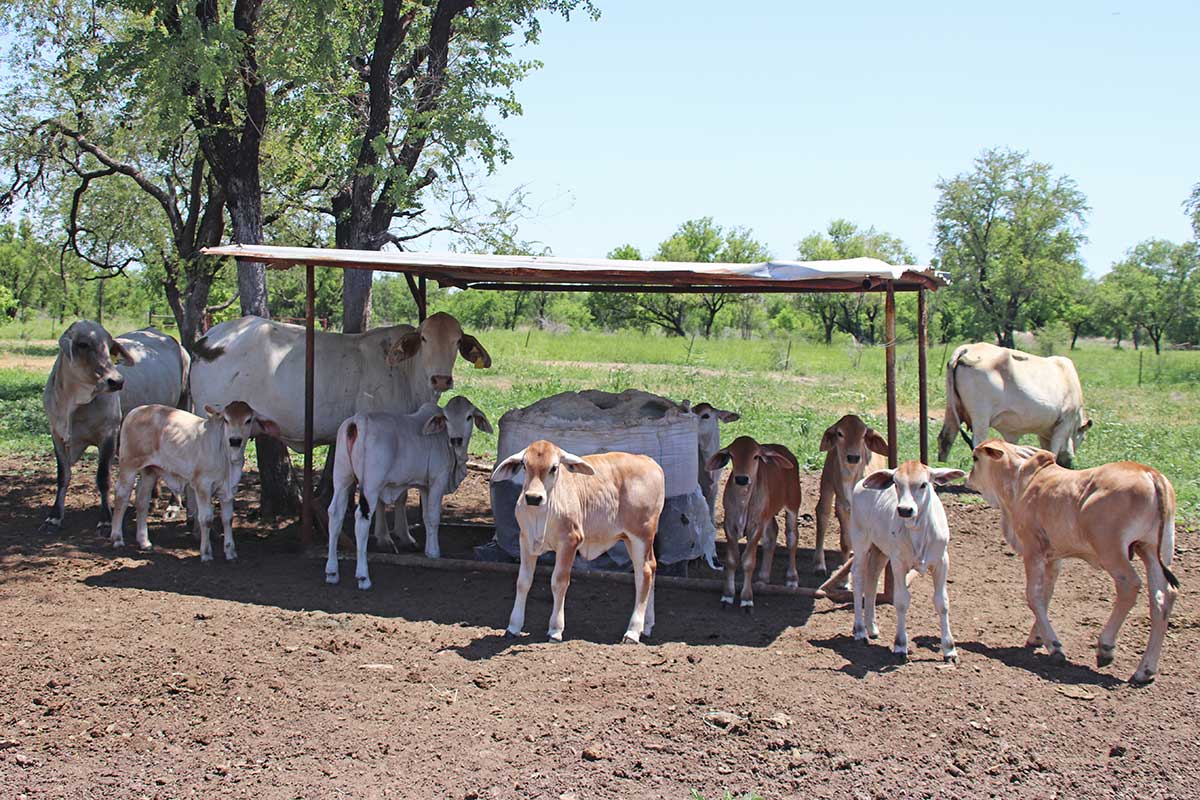
The recently completed Kidman Springs phosphorus (P) trial showed large benefits and a very high return on investment from feeding P supplement to cattle in P deficient country.
To find out more, go to the FutureBeef website.
Senepol crossbreeding project
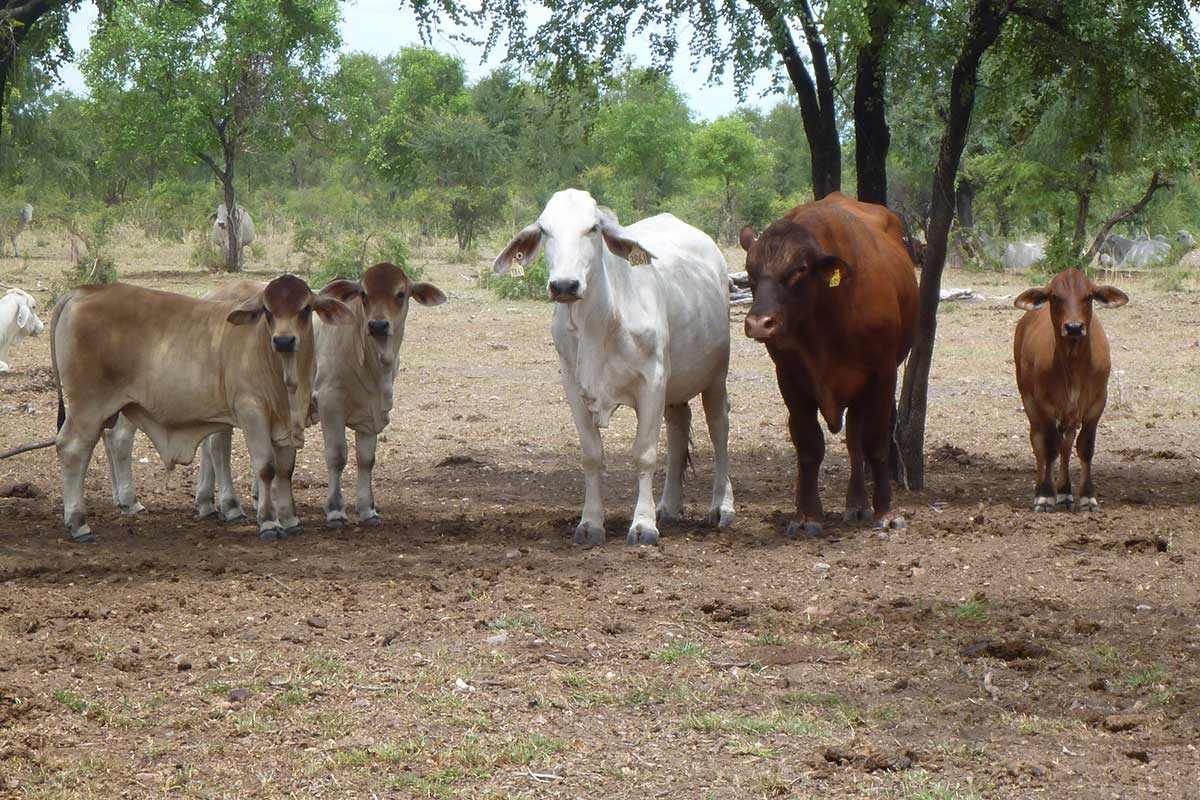
Results from a Katherine study relating to long-term performance of females in the Senepol crossbreeding project, provides northern cattle producers with insights relating to crossbreeding for multiple markets.
Read more about the Senepol crossbreeding project on the FutureBeef website.
Students swap classroom for cattle yards and crops
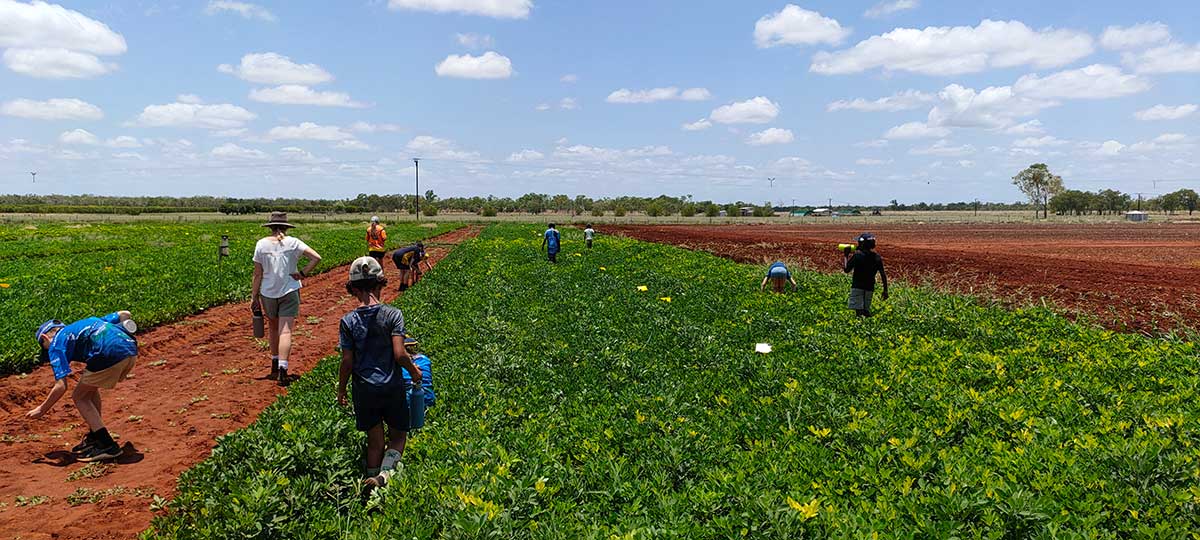
Schools are welcome to organise a visit to Katherine Research Station (KRS). Last year, KRS received 3 different school visits where students learnt about livestock and plant research, the Northern Territory (NT) agricultural industry, and pathways to a career in Agriculture.
What better way to learn about agriculture than to see it first-hand! Katherine Research Station (KRS) had 3 different schools visit in 2022, and it was great to see such a keen interest in the industry. Katherine High School, Barunga School, and Mataranka Primary School students dropped in to spend some time with Department of Industry, Tourism and Trade (DITT) staff and learn about livestock and plant research, the NT agricultural industry, and pathways to a career in agriculture (Ag).
The students got a front-row seat to cattle handling and working dog demonstrations which were a hit with everyone. They also got to see some of the technology used to collect cattle data for research projects such as GPS collars, accelerometer ear tags and birth sensors - much to the students’ disgust when they found out where these go!
A tour of cropping and horticultural trials was also part of the visit for each school group. It’s not clear who was more surprised about how peanuts grow, the students, teachers, or livestock staff. Plant industries staff took the groups past the horticultural trials at KRS, including the avocados and agave. Of course, the mango trials were also popular, especially when there’s ripe mangoes on the ground.
Students were also able to chat with KRS staff about careers in Ag. Not only were they able to learn about a range of jobs, they were able to find out from people in those roles how they had got there, and what different pathways into Ag could look like.
KRS is located on the outskirts of Katherine, and many people drive past every day, but what actually happens there? The research station is a base for DITT staff that work across the NT to conduct research trials, extension programs and provide advice on livestock and plant production, as well as biosecurity. While a few of our research trials are located on KRS, there are many more underway on other DITT research stations and farms, and on commercial properties. We work very closely with NT producers to deliver outcomes that will provide a benefit to their business and their industry. Together we work to promote and enable Territory economic development and underpin market access for Ag products by providing research extension and diagnostic functions in partnership with industry.
Read more information about DITT (primary industry) and our projects and for an endless resources on all things north Australian beef, head over to the FutureBeef website.
If you’d like to have a chat about bringing students to Katherine Research Station or about any of our research projects, flick an email to DITT Pastoral Extension Officer, Stacey Holzapfel at stacey.holzapfel@nt.gov.au or call Katherine Research Station on 08 8973 9739.
NT Government gravity survey - central Australia
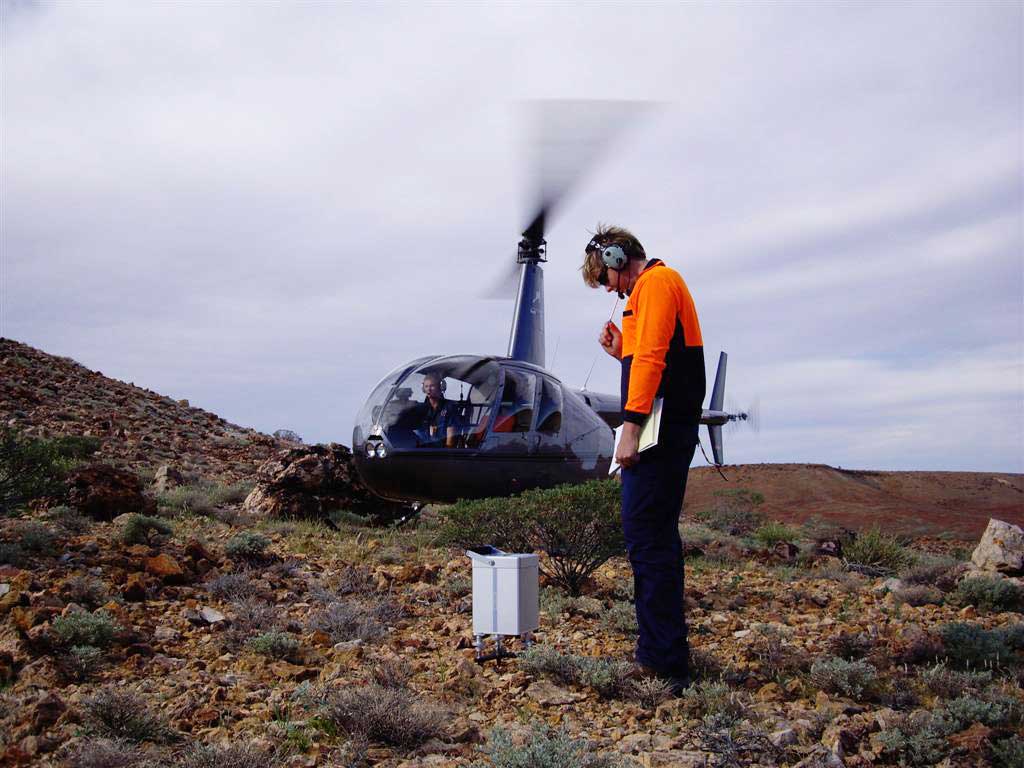
The Northern Territory Government will be doing a gravity survey within the Simpson Desert region starting in March 2023. The survey will involve a helicopter landing approximately every 4kms and taking a reading with a gravity meter. Each reading takes approximately 5 minutes. There will be no ground disturbance.
Gravity information is collected using the gravity meter, which is a device with a very sensitive spring to measure changes in the earth’s gravitational field. Gravity information is an important tool that will assist regional and national geological mapping.
The results from the gravity readings can be used to find rock formations under the ground and also detect possible areas of underground water.
This is a no impact program that will require helicopter access to some pastoral stations and Aboriginal land trusts. For further information, please call Peter Campbell on 08 8999 5202 or 0427 270 801.
Banana freckle update
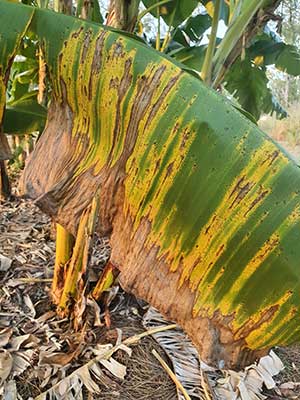
The Department of Industry, Tourism and Trade is currently in the process of negotiating a new response plan under the emergency plant pest response deed. The new response plan will include surveillance activities to enable the Northern Territory to declare successful eradication of banana freckle.
Banana freckle (Phyllosticta cavandishii) is a pest of banana leaves and fruit caused by a fungal pathogen. Affected bananas are safe to eat and the eating quality of the fruit is not affected. However, the shelf life can be reduced and blemishes on the skin reduce their visual appeal and saleability. Blemished fruit may not be marketable.
Banana freckle is a serious threat to the banana industry as it reduces the productivity of banana plants. The disease decreases plant health and productivity by reducing the amount of healthy leaf area, and affects fruit quality and appearance.
Production costs may also increase as a result of the additional costs of fungicide sprays and removal of infected leaves. Some of these increased costs might be passed onto consumers.
Since the disease was detected in May 2022, 51 infected premises (IPs) have been detected in the Greater Darwin Region, of which 43 are in the Batchelor (27) and Rum Jungle (16). Infection has also been recorded at Middle Point, Humpty Doo, Fly Creek, Marrakai, and on the Tiwi Islands.
As at 20 January, all infected plants on known IPs have been removed, with plants remaining at one of the commercial properties, but due for removal shortly.
The NT Government is grateful to industry and the community for their support and engagement in the program. In particular, we offer a big thanks to those who have allowed us onto their properties to remove their banana plants and/or to undertake surveillance.
Study concludes bottle teats to be major cause of calf loss
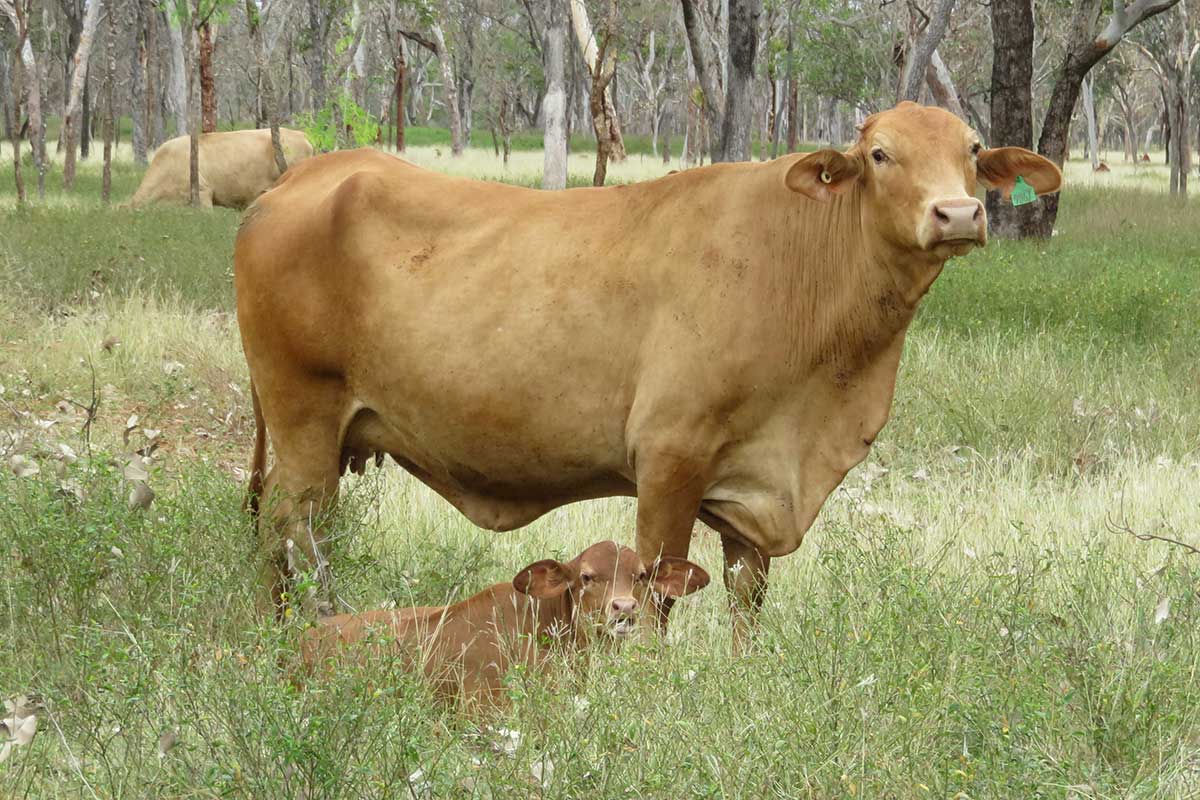
A recently concluded study by the Department of Industry, Tourism and Trade has found that bottle teats are a major cause of calf loss in northern beef herd.
Bottle teat is a condition affecting cows where the teats on the udder become enlarged. When this occurs, it can be difficult for calves to get their mouth around the teat to suckle and can result in calves dying from malnutrition. Read more about bottle teat causing calf loss on the FutureBeef website.
Give feedback about this page.
Share this page:
URL copied!
